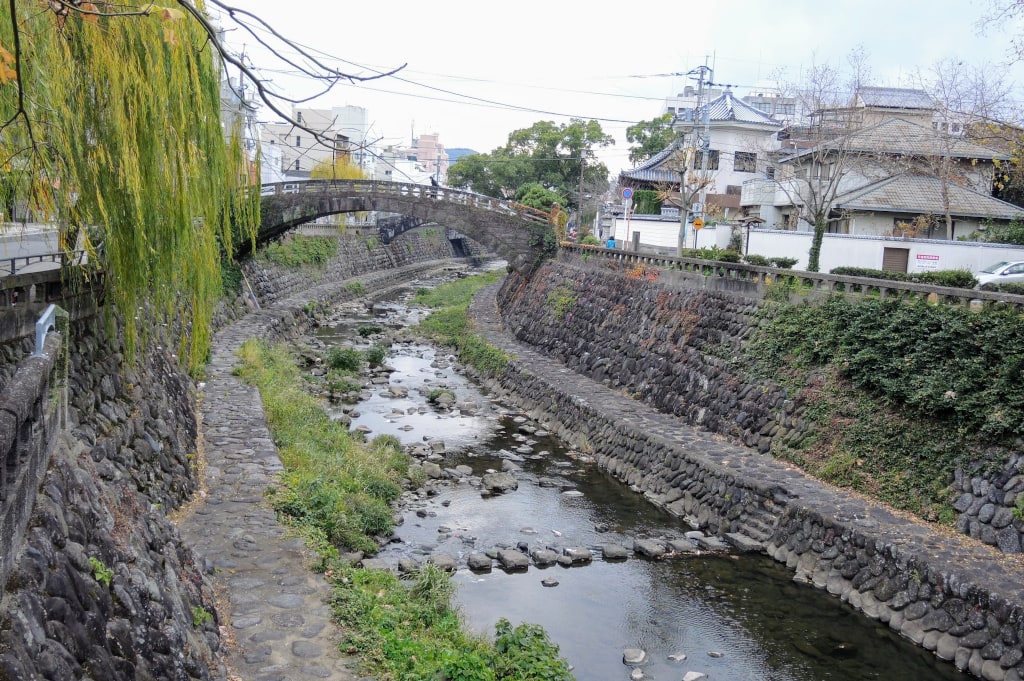People are always looking for opportunities to restart their lives abroad.
Of course, with so many countries across the globe to choose from, making the right decision is as complicated as it always has been.
Keep reading to find out exactly why Japan is right at the heart of everything an expat could wish for in a country.
Download a PDF of this Guide:
A Practical Guide to Teaching English in Japan
by Rob Dyer
It can be especially difficult for expats (or expatriate, a person who resides and works in a nation other than their upbringing) to discern which aspects contribute most to a high quality of life.
For some people, the luxury of a four day work week appeals, while for others it is the chance to seek and explore new horizons. All of these options can be confusing, without doubt.
Fortunately, help is at hand in the form of the guide below.
Is teaching English in Japan the ideal expat job?
In the Land of the Rising Sun, there are several different types of work available for a willing expat, from banking to technology, through to hospitality and the service industry. This choice is rewarding, as it provides plenty of options for anyone considering making the move East.

Teaching English in Japan is a popular way into the Japanese job market
However, becoming an English teacher in Japan is a possibility that should be right at the top of the list. For starters, there are so many types of roles that could be fulfilled by the right TEFL (or Teaching English as a Foreign Language) teacher, from kindergarten all the way up to adult business learners.
In addition, the expat community is thriving, with Japanese people being very welcoming to international visitors. This gives the TEFL educator the perfect chance to enjoy a professional and personal life that is pleasant and meaningful.
SEE ALSO: Exploring Teaching Opportunities in Japan (Including the JET Program)

Japanese people are very welcoming to international visitors
Furthermore, teaching TEFL is a position that comes with a range of benefits, from flexibility over working hours (depending on the setting), location (the choice to teach in one place or several), to pay that can be more than commensurate with the cost of living.
If you lack Japanese language skills, it is still possible to live and work in Japan. Travelling in Japan when you don't speak the language is a good way to get a feel for the potential challenges you may face when relocating there.
If you're interested to know more about preparing for work in Japan, I recommend reading this guest post I wrote called Planning To Work In Japan? Here’s 6 essential things to know before you pack your cases over at LeaderSkillsInc.
Getting the best-paid English teaching positions
For those who have never heard of TEFL, the concept of teaching the English language can almost immediately feel daunting. Whether to brush up on verbs or nouns, or studying the difference between the gerund and the infinitive, English language learners are full of surprising and unexpected questions that will help them make further progress on their own educational path.

It's prudent to get qualified before applying for teaching positions in Japan
Therefore, it is prudent for any budding TEFL instructor to get qualified before starting, especially in a place like Japan, where academic achievement is particularly culturally important . On top of that, Japan’s hard working culture typically means that the best paid positions are only on offer to those who go the extra mile and get certified.
What city life in Japan has to offer
When most citizens are asked to think about Japan, their minds are often drawn to the capital city, Tokyo. Naturally, this is logical, given the huge population there, as well as the background of many famous electronics companies used by global residents everywhere, from Sony to Nintendo.
Yet, there is so much more to Japan than this major metropolis. For example, Kyoto is a flourishing mid-level city that manages to combine the best of both modern technology and traditional nature, all without having to spend hours getting away from it all.
Beyond Kyoto, there are a range of things to do in the hustle and bustle of Osaka, from the temples all the way to driving through a skyscraper! Then there is Nagano, which hosted the 1998 Winter Olympics, and is a wonderful spot to practice a touch of skiing or snowboarding.
All of this is before one even considers the majestic Mount Fuji, made globally famous by the internationally renowned artist Hokusai.
See also: Why You Need To Go Beyond Tokyo
Choosing where to live and work in Japan
For anybody making the brave and courageous decision to live and work in another country, one of the first things to do is to make a list of essential priorities. Below are some of those in further detail.
First up is the city or town to live in. This really does depend upon the personality of the TEFL educators themselves.
For some, being right in the thick of the action is the best decision, so a big city like Tokyo or Osaka would work well. Inevitably, these types usually prefer the convenience of being as close to downtown as possible, which does make the rent a bit pricey, but does save on time and money getting around.

Nagasaki is a compact city and has attractive historical areas in its heart like the Nakashima River district
For others, working in a smaller city such as Hiroshima or Nagasaki would work better, allowing them the platform from which they can get to know the place really intimately. This also is decent advice for those looking to settle down and make a more permanent move, either alone or with loved ones.
RELATED: Planning To Work In Japan? Here’s 6 essential things to know before you pack your cases
Deciding who to teach
Beyond that, there is the major decision of which age group to teach.
This also hinges on the character of the TEFL teacher. Working with younger Japanese learners can be massively rewarding, in the sense of having a dynamic, energetic environment, where students typically make great strides in language learning much more quickly.
However, this does have the caveat that this energy can sometimes be hard to control, and with big class sizes, require a lot of patience on the part of the TEFL teacher to work through.

Working with younger Japanese learners can be massively rewarding
By contrast, older learners are usually much calmer, and the class sizes are typically much lower than working with younger students. This, and the fact that older kids and adults normally have a greater understanding of their own learning processes and strengths, makes this a popular option for a large group of TEFL teachers.
Having said that, the flip side is that these students experience something called fossilisation, which in effect means that it is a little bit harder to teach older students new things. Still, with perseverance and creativity, it is a hurdle that is far from insurmountable.
Either way, being a TEFL teacher in Japan can be both fulfilling and rewarding, in both the short term and long term.
Want to learn Japanese?
Rocket Languages are experts in online language learning.
With them, you won't just be taking a language course. You'll be developing a deeper connection and understanding of the Japanese people, places and culture.
You are less than 60 seconds away from getting started.
Take a free trial to see what it’s all about and why they have over 2 million satisfied customers.
Once you’ve signed up, you’ll have access to several sample lessons, an exclusive discount, and more!

Next steps
For a list of practical steps to take to get you into teaching English in Japan, then I recommend reading: 7 Secrets To Getting Better English Teaching Work In Japan - a guest post here on The Real Japan by long-time expat and English language teacher Craig Hoffman.
I've also written about pre-planning considerations for a move to Japan for work purposes. Check out my article Planning To Work In Japan? Here’s 6 essential things to know before you pack your cases on the LeaderSkillsInc website.
Use the Resources and Sources links below for further related reading. If you have any questions or wish to share your own experiences please leave a comment below.

About the Author
A writer and publisher from England, Rob has been exploring Japan’s 6,800 islands since 2000. He specialises in travelling off the beaten track, whether on remote atolls or in the hidden streets of major cities. He’s the founder of TheRealJapan.com.
Resources
Download a PDF of this Guide:
Further Reading
Exploring Teaching Opportunities in Japan (Including the JET Program)
How to become an English teacher in Japan (TEFL.org)
7 Secrets To Getting Better English Teaching Work In Japan
Is A Four-Day Work Week Catching On In Asia? (CNBC)
Ministry of Foreign Affairs of Japan - Visa Information
Sources linked to in this post:
https://www.tefl.org/teach-english-abroad/teach-english-in-japan/requirements/
https://www.therealjapan.com/unique-things-to-do-in-osaka/
https://www.therealjapan.com/hidden-kyoto-walks-free/
https://www.theguardian.com/cities/2019/sep/20/which-is-the-worlds-hardest-working-city
More Planning Resources
My List of Recommended Japan Travel Resources
Planning A Trip To Japan eBook
How To Travel In Japan Without Speaking Japanese eBook
The Real Japan Travel Store
If you enjoyed this article please share this image online:



